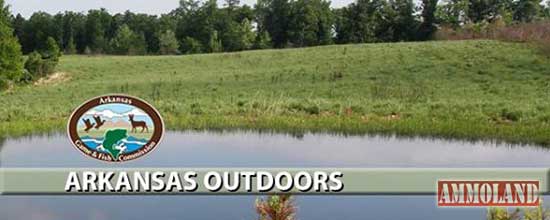

Little Rock, AR -(Ammoland.com)- Many, perhaps most, Arkansans enjoy purple hull peas on their dinner table. Deer love the peas as well.
Planting in food plots is nothing new and is recommended by wildlife biologists of the Arkansas Game and Fish Commission – but as one of a variety of plantings suggested to augment native foods for the goal of attracting wildlife by giving a boost to nutrition.
“Purple hulls” as most Arkansans call them are a type of black-eyed pea which in turn is a type of a broad category of plants called cowpeas. Some other varieties are iron clay peas, crowder peas, lady peas and southern peas. Originally from Africa, cowpeas have been grown in America since colonial days.
A problem with planting peas of any type is deer like them so much it’s hard to raise the peas to maturity. Deer relish feeding on tender leaves of young plants. They like eating the pods, and they enjoy eating the peas themselves.
One defense strategy is putting a fence around the pea planting. There are many different types of fencing that can be utilized. Fencing is most effective if it is constructed before the peas germinate. Another option is the use of chemical deterrents. The easiest and cheapest is to mix two eggs with a gallon of water in a pump-up type sprayer and apply to the food plot. To boost effectiveness capsaicin (what makes hot peppers so hot) may also be added to the mix. Both ingredients can be found at local grocery stores. Several applications may be necessary depending on rainfall.
Wildlife biologists suggest seeding an assortment of plants in food plots to give deer and other animals food over a long period – from spring through fall and into winter. Peas in many forms fill part of this recommendation.
Ralph Meeker is assistant deer program coordinator for the Game and Fish Commission. He said, “Many landowners rely on the old standby of white clover which can survive up until late-June and even later depending on weather. It is also a perennial so it has the ability to come back year after year (usually three to five years) depending on weather and management. White clover also is high in protein and is highly digestible. Some folks are now introducing chicory into their clover food plots as well. This is boosting both the longevity of the plot and the attractiveness of their plot to deer.”
Seeds for pea plantings are available at most farm supply, garden outlets and home improvement stores in Arkansas.
About Arkansas Game and Fish Commission
The Arkansas Game and Fish Commission plays an important role in keeping The Natural State true to its name. During the last 100 years, the agency has overseen the protection, conservation and preservation of various species of fish and wildlife in Arkansas. This is done through habitat management, fish stocking, hunting and fishing regulations, and a host of other programs.
For more information, visit www.agfc.com.
